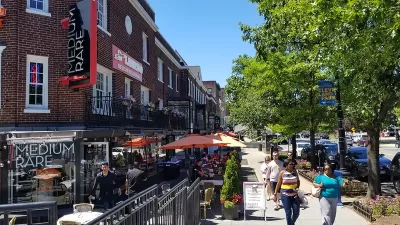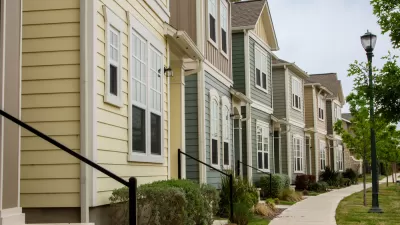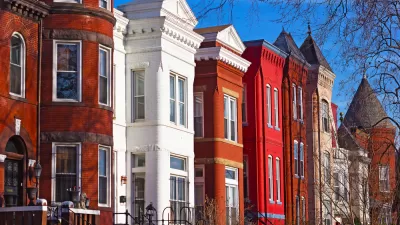In a move that will restrict the building envelope of residential properties, the Washington, D.C. Zoning Commission approved limitations to the construction of rear additions.
Michael Rouse reports on a change to the zoning code in Washington, D.C. that "makes it harder for homeowners to [build additional space] that by making it illegal to extend a house more than ten feet beyond its neighbor's back wall."
In addition to listing the benefits of extra space and dwelling units that rear additions afford, Rouse notes that a valid criticism of rear additions is their potential impact on neighboring properties. In response to those criticisms, the District's Zoning Commission has further restricted the development of rear additions.
Previously, the District's zoning code regulated rear additions on measurements of lot coverage and rear setbacks, so the new law amounts to a third qualifier. The rule goes into affect at the end of April, and Rouse's coverage provides a good primer for understanding the causes and effects of the change.
FULL STORY: You’ll have you jump through a new hoop if you want a rear addition on your house in DC

Alabama: Trump Terminates Settlements for Black Communities Harmed By Raw Sewage
Trump deemed the landmark civil rights agreement “illegal DEI and environmental justice policy.”

Study: Maui’s Plan to Convert Vacation Rentals to Long-Term Housing Could Cause Nearly $1 Billion Economic Loss
The plan would reduce visitor accommodation by 25% resulting in 1,900 jobs lost.

Why Should We Subsidize Public Transportation?
Many public transit agencies face financial stress due to rising costs, declining fare revenue, and declining subsidies. Transit advocates must provide a strong business case for increasing public transit funding.

Wind Energy on the Rise Despite Federal Policy Reversal
The Trump administration is revoking federal support for renewable energy, but demand for new projects continues unabated.

Passengers Flock to Caltrain After Electrification
The new electric trains are running faster and more reliably, leading to strong ridership growth on the Bay Area rail system.

Texas Churches Rally Behind ‘Yes in God’s Back Yard’ Legislation
Religious leaders want the state to reduce zoning regulations to streamline leasing church-owned land to housing developers.
Urban Design for Planners 1: Software Tools
This six-course series explores essential urban design concepts using open source software and equips planners with the tools they need to participate fully in the urban design process.
Planning for Universal Design
Learn the tools for implementing Universal Design in planning regulations.
Caltrans
Smith Gee Studio
Institute for Housing and Urban Development Studies (IHS)
City of Grandview
Harvard GSD Executive Education
Toledo-Lucas County Plan Commissions
Salt Lake City
NYU Wagner Graduate School of Public Service





























